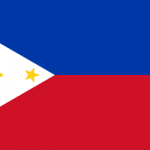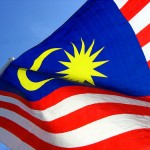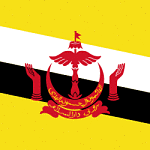Malacanang, the seat of the Philippine government, has announced this early that there are 16 holidays to look forward to in 2013. There are 10 regular holidays and 6 special non-working holidays. One special (working) holiday was announced for schools.
Because the Philippines also has a significant Muslim population in Mindanao, the observance of Eid’l Fitr and Eidul Adha (which are declared as regular holidays) is included in the Philippines public holidays 2013 calendar. This will give Filipinos 18 holidays next year to plan their vacations around. Malacanang has not yet released the dates of these Islamic holidays as these observances are determined according to the sightings of the new moon. Only when the National Commission on Muslim Filipinos has advised the Office of the President will Malacanang announce the official dates.
The Philippines public holidays 2013 calendar is a combination of religious, cultural, historical and internationally observed holidays. In the Philippines, the holidays are categorized as follows:
-
Regular holidays are those that have been traditionally celebrated in observance of important events in Philippine history, feasts of the Catholic Church and Islam, and international celebrations that the Philippine government agreed to take part in.
-
Special non-working holidays are adjunct holidays to allow Filipinos to travel to and from their home provinces to perform religious rites and ceremonies.
-
Special working holidays are celebrated to increase awareness of significant events, whether local or international.
The regular holidays of the Philippines are listed below:
New Year’s Day 2013 – Tuesday, 1 January 2013
The Philippines is using a Gregorian calendar, so the first day of the year is marked a regular holiday.
Maundy Thursday 2013 – Thursday, 28 March 2013
The Philippines is a deeply Catholic country. Maundy Thursday celebrates the religious rite of Christ washing his disciples’ feet.
Good Friday 2013 – Friday, 29 March 2013
Good Friday commemorates the passion and the crucifixion of Christ and his death on the cross.
Araw ng Kagitingan 2013 – Tuesday, 9 April 2013
The Day of Valor commemorates the gallantry of Filipino and American soldiers who defended Bataan against the invading Japanese Army.
Labor Day 2013 – Wednesday, 1 May 2013
The Philippines recognizes the social and economic achievements of its labor force.
Independence Day 2013 – Wednesday, 12 June 2013
This is the day when the Philippines declared independence from Spain in 1898.
Eid al Fitr – Friday, 9 August 2013
Malacanang Palace has confirmed that on this day, Muslims – concentrated in Mindanao in southern Philippines – will celebrate the end of Ramadan. The date will be marked with a feast at noon together with the family after the early morning Eid “salat” or ritual prayers. Families are usually busy preparing for the coming Feast of Breaking the Fast – shopping for new clothes, gifts and food stuff for the Eid banquet. On the day of the feast itself, children receive gifts while adults make amends with relatives, friends and neighbors whom they may have offended. Outside of Mindanao, the greatest gathering of Muslims for the Eid salat happens in Luneta Grandstand in the Philippine capital, Manila. The rest of the country (which is Catholic-majority), however, considers the day as business as usual.
National Heroes’ Day 2013 – Monday, 26 August 2013
The country celebrates the contributions of all its heroes, past and present, to the freedom enjoyed by the citizens of today.
Bonifacio Day 2013 – Saturday, 30 November 2013
This day celebrates the birthday of Andres Bonifacio, the leader of armed revolution against Spain.
Christmas Day 2013 – Wednesday, 25 December 2013
As a Catholic country, the Philippines joins the Christendom in celebrating the birth of its Savior.
Rizal Day 2013 – Monday, 30 December 2013
The fight for independence against Spain started with the writings of Jose Rizal. This day commemorates the day he was executed by colonial authorities in 1896 in what is now known as the Rizal Park (known to locals as Luneta Park)
The special non-working holidays of the Philippines are as follows:
Black Saturday 2013 – Saturday, 30 March 2013
Catholics commemorate the day when Christ’s body was entombed.
Ninoy Aquino Day 2013 – Wednesday, 21 August 2013
Benigno “NInoy” Aquino was a senator during the regime of Pres. Ferdinand Marcos and a staunch advocate against Martial Law. His death on August 21, 1983 sparked the beginnings of the EDSA Revolution in 1986 that ousted Pres. Marcos.
All Saints’ Day 2013 – Friday, 1 November 2013
Although intended to remember the souls of the beatified, “Undas” is the customary day when Filipinos pay their respects to the departed. The living light candles, offer flowers or food, and say prayers for the deceased.
All Souls’ Day 2013 – Saturday, 2 November 2013
Filipinos go home to their provinces of origin to honor their departed. While November 1 is the customary day to visit the grave, November 2 allows time for rest or travel.
Christmas Eve 2013 – Tuesday, 24 December 2013
Filipinos are deeply family oriented, and this holiday allows them to travel back home in time for ‘noche buena’ or dinner on Christmas Eve. Noche buena on the 24th of December is traditionally more important than lunch or dinner on the day of Christmas itself.
New Year’s Eve 2013 – Tuesday, 31 December 2013
This holiday allows families to get together in time for ‘media noche’ or dinner as the clock strikes midnight.
At present, the lone special working holiday is only applied to schools. There will be no classes on this day.
EDSA Revolution Anniversary 2013 – Monday, 25 February 2013
On this day, Filipinos commemorate the ‘bloodless revolution’ that ousted the dictator President Ferdinand Marcos and restored the political, social and economic freedoms enjoyed by Filipinos before Martial Law was declared.
It is important to keep in mind that while these holidays are scheduled on actual calendar days, Republic Act No. 9492 allows for ‘floating dates’ for the convenience of the public. Specifically, RA 9492 provides that “holidays, except those which are religious in nature, are moved to the nearest Monday unless otherwise modified by law, order or proclamation.” Travelers are therefore advised to check for latest updates from Malacanang for any changes on the holiday dates.
Explore the rest of the world
More from my site
Article by Chris
Chris had a passion to contribute to society especially to fellow travelers like himself. He also had a passion for Southeast Asia and frequently visited. While brainstorming ideas, he decided that a travel blog dedicated to his favorite countries, Thailand and Singapore, could be more beneficial than any guidebook. Only one year later did the blog’s success bring in more writers, more countries, and more readers.
- Google+ |
- More Posts (327)
Help others get the information they need by liking or sharing our page!
Follow @followloveblab The Oriental Allure: Captivating and Mysterious
The Oriental Allure: Captivating and Mysterious



